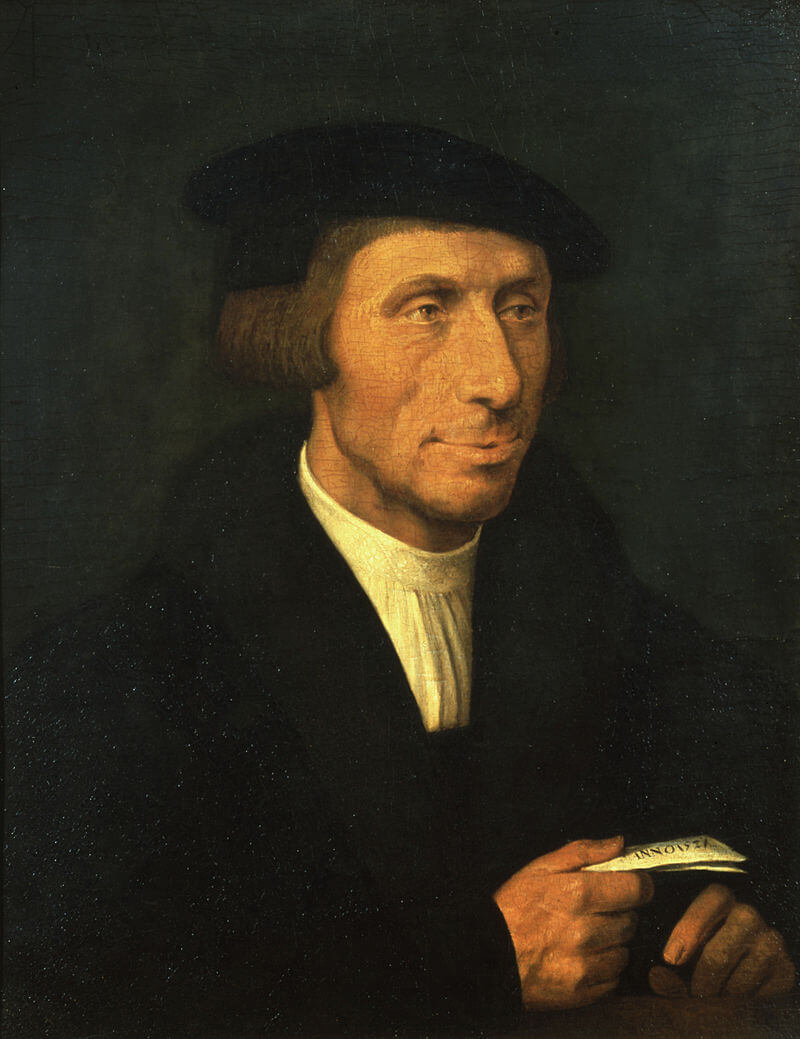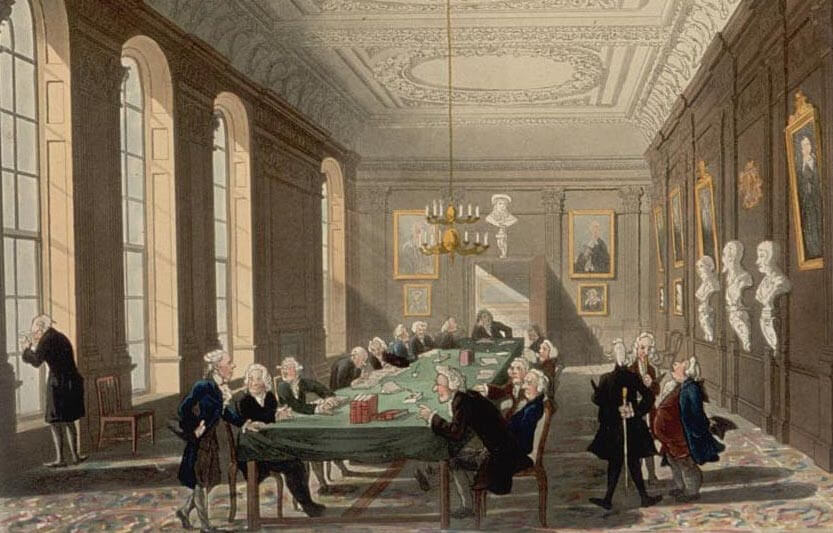The Royal College of Physicians is a U.K. based, internationally recognised, professional body that is dedicated to the improvement of medical practice and patient care. It is also the oldest royal medical college in the world.
In 2006 I became a member of the Royal College of Physicians after navigating their tricky exams, and over a decade later this remains my proudest academic achievement. I try to visit the London College a couple of times a year, and thoroughly enjoy walking the medicinal garden and grounds, and visiting the museum. It has a rich and varied history that is truly fascinating and its story started with a humanist scholar and priest by the name of Thomas Linacre.
The Early Life of Thomas Linacre
Thomas Linacre was probably born in Canterbury circa.1460, although very little is known about his parentage and birth for certain. He is thought to have been educated at Canterbury Cathedral School and entered All Souls College Oxford in 1480, where he distinguished himself in the study of the Greek and Latin literature, philosophy, and history. In 1484 he was elected a fellow of All Souls College and shortly afterwards he visited Italy, following an embassy by Henry VII to the Vatican.
Whilst in Italy Linacre visited Bologna, Florence, Rome, Venice, and Padua. It was during his time in Padua that he studied medicine, gaining his degree with great distinction in 1496. Whilst in Italy he met and studied with several famous physicians and humanists, including Angelo Poliziano, Aldus Manutius Romanus, Nicolaus Leonicenus, Demetrius Chalcondylas, and Hermolaus Barbarus.
Shortly after obtaining his degree, Linacre returned home to Oxford, and in 1509 he was appointed to the position of the personal physician to the newly crowned King Henry VIII. He had many other notable and illustrious patients, including Cardinal Wolsey, Archbishop William Warham, and Bishop Fox. He was also a close personal friend of Sir Thomas Moore and Desiderius Erasmus Roterodamus.

A portrait of Thomas Linacre from Windsor Castle by William Miller
The Founding of the Royal College of Physicians
In the early 1500s there was little in the way of formal regulation of medical practice in England. Quackery was rife and many self-proclaimed ‘physicians’ were treating patients without any training or medical knowledge. It is almost certain that their unregulated practices were responsible for more harm than good and a great many patients died as a consequence of their activities.
In 1518 it had become clear to Linacre that this situation had to be amended. He assembled a small group of distinguished physicians and petitioned King Henry VIII to establish a College of Physicians. The founding charter of the College was to grant licences to those qualified to practice and to punish those engaging in malpractice.
The College of Physicians was formally founded on the 23rd September 1518 when it received a Royal Charter. This was affirmed by an Act of Parliament in 1523, which extended its powers from London to the whole of England. It is not known for certain when the name “Royal College of Physicians” was first used, but it was finally confirmed over 400 years later, by the Royal College of Physicians of London Act.

A meeting of the College of Physicians in the early 1800s by Augustus Charles Pugin and Thomas Rowlandson
Linacre’s Legacy
Linacre resigned from practicing medicine shortly after the College was established to become a priest, and was appointed as the rector of Wigan in 1520. He donated much of his amassed fortune from his years of medical practice to the foundation of chairs in Greek medicine at the Oxford and Cambridge universities, and to the continued growth and development of the Royal College of Physicians. A stone bust of Thomas Linacre now stands proudly in the gardens of the College, at 11 St Andrews Place, near Regent’s Park in London, commemorating his extraordinary achievements.
His legacy is perhaps best summed up in the words of his biographer, John Noble Johnson:
“In private life he had an utter detestation of every thing that was dishonourable; he was a faithful friend, and was valued and beloved by all ranks in life. He showed a remarkable kindness to young students in his profession; and those, whom he found distinguished for ingenuity, modesty, learning, good manners, or a desire to excel, he assisted with his advice, his interest and his purse.
In short, he was, in his own time, reckoned by the best judges a man of a bright genius and a clear understanding, as well as of unusual knowledge in different parts of learning; and his works will fully satisfy us that he deserved this character. He was one, who, both living and dead, by his writings and benefactions, has done great honour not only to his profession but also to his country.”
Medical Exam Prep would like to thank Dr. Marc Barton for this guest blog post.
About Dr. Marc Barton
Dr. Marc Barton qualified from Imperial College School of Medicine in 2001. Since that time he has worked in a variety of different medical specialities. He worked as a GP partner from 2006 until 2008 and more recently as a higher specialist trainee in Emergency Medicine.
You can read more posts on the History of Medicine from him at his blog: Past Medical History





